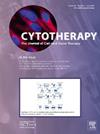嵌合抗原受体工程自然杀伤细胞治疗血液恶性肿瘤的疗效:临床前研究的系统回顾和荟萃分析。
IF 3.7
3区 医学
Q2 BIOTECHNOLOGY & APPLIED MICROBIOLOGY
引用次数: 0
摘要
背景:嵌合抗原受体(CAR)工程NK细胞(CAR-NK)是一种新的血液系统恶性肿瘤免疫治疗方法,旨在克服CAR- t细胞(CAR- t)面临的一些挑战。由于发表的临床研究很少,临床前研究可以确定加速临床转化的策略。我们对CAR-NK用于血液恶性肿瘤治疗的临床前体内使用进行了系统回顾,以整体和公正的方式评估这些疗法。方法:我们的方案在PROSPERO注册(ID: CRD42023438375)。我们在OVID MEDLINE、OVID Embase和Embase中搜索了使用人类CAR-NK细胞治疗血液恶性肿瘤的动物研究。筛选研究的合格标准一式两份。我们的主要结果是生存和肿瘤体积的减少。单个实验的数据提取由一名审稿人使用digiteittm软件进行,并由另一名审稿人进行验证。采用综合meta分析软件进行meta分析和亚组分析。描述性结果的信息由两名独立的审稿人一式两份提取。使用cycle动物研究偏倚风险工具评估偏倚风险。结果:共有34篇论文符合入选标准。总的来说,CD19是最常见的抗原靶向,但在抗原靶点、生成CAR-NK细胞的来源材料和NK细胞修饰方面存在实质性的多样性。接受CAR-NK治疗的小鼠明显长于未接受治疗的小鼠(中位生存率为1.18,95% CI: 1.10-1.27, P < 0.001),而接受非工程化NK细胞治疗的小鼠(中位生存率为1.13,95% CI: 1.03-1.23, P < 0.001)。同样,与未治疗的小鼠(平均肿瘤体积比0.23,95% CI: 0.17-0.32, P < 0.001)或用非工程化NK细胞治疗的小鼠(平均肿瘤体积比0.37,95% CI: 0.28-0.51, P < 0.001)相比,CAR-NK治疗显著减少了肿瘤负荷。亚组分析显示,与IL-15联合治疗可减少肿瘤体积,但未增加生存期。一般来说,CAR-NK细胞持续时间较短,但IL-15使其持续时间增加。结论:CAR-NK在临床前模型中显示出治疗血液系统恶性肿瘤的希望。本文章由计算机程序翻译,如有差异,请以英文原文为准。
Efficacy of chimeric antigen receptor engineered natural killer cells in the treatment of hematologic malignancies: a systematic review and meta-analysis of preclinical studies
Background
Chimeric antigen receptor (CAR) engineered NK cells (CAR-NK) are a novel approach to the immunotherapy of hematologic malignancies which seeks to overcome some of the challenges faced by CAR-T cells (CAR-T). With few published clinical studies, preclinical studies can identify strategies to accelerate clinical translation. We conducted a systematic review on the preclinical in vivo use of CAR-NK for the treatment of hematologic malignancies to assess these therapies in a holistic and unbiased manner.
Methods
Our protocol was registered with PROSPERO (ID: CRD42023438375). We performed a search of OVID MEDLINE, OVID Embase, and Embase for animal studies employing human CAR-NK cells in the treatment of hematologic malignancies. Screening of studies for eligibility criteria was performed in duplicate. Our primary outcomes were survival and reduction in tumor volume. Data extraction from individual experiments was performed by one reviewer using DigitizeitTM software and verified by a second reviewer. Meta-analysis and subgroup analyses were performed using Comprehensive Meta-AnalysisTM software. Information for descriptive outcomes was extracted in duplicate by two independent reviewers. Risk of bias was assessed using the SYRCLE Risk of Bias Tool for Animal Studies.
Results
A total of 34 papers met eligibility criteria. Overall, CD19 was the most common antigen targeted however there was substantial diversity in antigenic targets, source material for generating CAR-NK cells, and NK cell modifications. Mice treated with CAR-NK therapy survived significantly longer than untreated mice (median survival ratio of 1.18, 95% CI: 1.10–1.27, P < 0.001), and mice treated with nonengineered NK cells (median survival ratio 1.13, 95% CI: 1.03–1.23, P < 0.001). Similarly, treatment with CAR-NK significantly reduced the tumor burden when compared to untreated mice (ratio of mean tumor volume 0.23, 95% CI: 0.17–0.32, P < 0.001) or mice treated with nonengineered NK cells (ratio of mean tumor volume 0.37, 95% CI: 0.28–0.51, P < 0.001). Subgroup analysis showed that cotreatment with IL-15 reduced tumor volume but did not increase survival. In general, CAR-NK cell persistence was short but was increased by IL-15.
Conclusions
CAR-NK shows promise for the treatment of hematologic malignancies in preclinical models.
求助全文
通过发布文献求助,成功后即可免费获取论文全文。
去求助
来源期刊

Cytotherapy
医学-生物工程与应用微生物
CiteScore
6.30
自引率
4.40%
发文量
683
审稿时长
49 days
期刊介绍:
The journal brings readers the latest developments in the fast moving field of cellular therapy in man. This includes cell therapy for cancer, immune disorders, inherited diseases, tissue repair and regenerative medicine. The journal covers the science, translational development and treatment with variety of cell types including hematopoietic stem cells, immune cells (dendritic cells, NK, cells, T cells, antigen presenting cells) mesenchymal stromal cells, adipose cells, nerve, muscle, vascular and endothelial cells, and induced pluripotential stem cells. We also welcome manuscripts on subcellular derivatives such as exosomes. A specific focus is on translational research that brings cell therapy to the clinic. Cytotherapy publishes original papers, reviews, position papers editorials, commentaries and letters to the editor. We welcome "Protocols in Cytotherapy" bringing standard operating procedure for production specific cell types for clinical use within the reach of the readership.
 求助内容:
求助内容: 应助结果提醒方式:
应助结果提醒方式:


